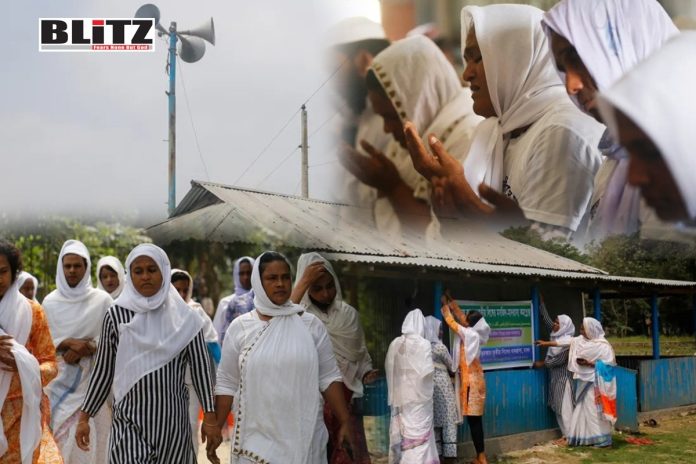In a outstanding stride in the direction of inclusivity and acceptance, Bangladesh has unveiled a groundbreaking initiative by opening its doorways to the Muslim transgender hijra neighborhood throughout the sacred partitions of a newly constructed mosque. Located close to Mymensingh, north of the capital Dhaka, this humble sanctuary stands as a beacon of hope and equality in a nation predominantly adherent to the Islamic religion.
For years, members of the hijra neighborhood have grappled with discrimination and exclusion from mainstream society. Regardless of being formally acknowledged as a 3rd gender since 2013, they’ve typically been denied the elemental proper to worship alongside their fellow Muslims. Nevertheless, the inauguration of this mosque signifies a pivotal second, promising worship with out prejudice for a neighborhood lengthy marginalized.
The journey in the direction of the institution of this sanctuary started with a poignant narrative of resilience and willpower. Disallowed from attending typical prayer providers, the hijra neighborhood discovered solace and assist within the solidarity of their very own. Land donated by the federal government served as the inspiration for this sacred house, providing refuge to those that had been expelled from established congregations.
Sonia, a member of the hijra neighborhood, displays on the importance of this momentous event, expressing gratitude for the chance to reconnect together with her religion. “I by no means dreamt I might pray at a mosque once more in my lifetime,” she shares, her voice trembling with emotion. “Now, that is our mosque. Now, nobody can say no.”
The wrestle for recognition and acceptance has been a relentless battle for hijras in Bangladesh. Regardless of strides in authorized and political spheres, they proceed to face systemic challenges, together with restricted property and marriage rights, in addition to discrimination in employment and training. Nevertheless, the opening of this mosque represents a symbolic step in the direction of dismantling limitations and fostering inclusivity.
Mufti Abdur Rahman Azad, the visionary behind this initiative and founding father of a hijra charity, emphasizes the importance of this milestone. “The brand new mosque is the primary of its sort within the nation,” he states proudly, underscoring its significance in difficult societal norms and selling tolerance.
Nevertheless, the highway to acceptance has not been with out its obstacles. Hardline Islamist teams have vehemently opposed the popularity of transgender people, resulting in protests and backlash in opposition to progressive measures. But, amidst adversity, the resilience of the hijra neighborhood shines via, as demonstrated by their unwavering dedication to constructing a sanctuary the place they’ll follow their religion with out worry of discrimination.
The mosque, affectionately christened because the Dakshin Char Kalibari Masjid for the Third Gender, stands resolute as a poignant testomony to the enduring energy of unity and compassion. Constructed via the collaborative endeavors of quite a few devoted native hijras, this sacred edifice transcends its bodily kind to embody a profound image of hope and belonging for a neighborhood that has endured long-standing marginalization.
Imam Abdul Motaleb, the non secular chief of the mosque, emphasizes the inclusive teachings of Islam, affirming the inherent dignity and value of all people. “They’re like some other individuals created by Allah,” he asserts, dispelling misconceptions and championing equality.
Because the mosque opens its doorways to worshippers, it additionally opens hearts and minds, difficult preconceived notions and fostering understanding. Tofazzal Hossain, an area resident, attests to the transformative energy of this expertise, acknowledging the profound impression it has had on his perceptions. “They dwell righteously like different Muslims,” he displays, his voice crammed with newfound respect and admiration.
In a world typically tormented by division and discord, Bangladesh’s pioneering initiative serves as a strong reminder of the transformative potential of compassion and acceptance. Because the transgender hijra neighborhood finds sanctuary throughout the sacred confines of this mosque, it sends a powerful message of unity and solidarity-one that transcends boundaries and embraces the inherent dignity of each particular person.


